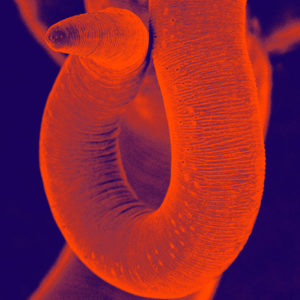Helminth Bioinformatics (Accra, Ghana)
8–13 September 2019
West African Centre for Cell Biology of Infectious Pathogens (WACCBIP), University of Accra, Ghana
Summary
Summary
In collaboration witthe the West African Centre for Cell Biology of Infectious Pathogens (WACCBIP), University of Accra, Ghana, we are pleased to announce the first edition of the Helminth Bioinformatics advanced course.
Helminths infections contribute significantly to the burden of neglected tropical diseases (NTDs) in many low- and middle- income countries (LMICs) in Africa, Asia and Latin America and the Caribbean (LAC). Despite important efforts to tackle these diseases through mass drug administration programs and others methods of control and containment, NTDs due to helminths such as schistosomiasis and soil-transmitted helminthiases continue to be among the most debilitating and morbidity-causing diseases in LMICs adding significantly to the economic burden in the strained economies. Moreover, decreased susceptibility to the most used chemotherapies is emerging in the field, raising concerns about the rise of drug-resistant helminths.
Advances in sequencing technologies have enabled the production of draft and high-quality genome assemblies for the most important disease-causing helminths. In addition, reduced costs of next-generation sequencing (NGS) techniques make sequencing accessible to the wider scientific community of researchers and organisations, providing unprecedented access to genomics. Data manipulation and computational analyses are still the main challenges that limit the realization of maximum benefit and appropriate interpretation of these data. These remain a big problem, particularly in African countries and other LMICs.
The Helminth Bioinformatics course aims to equip participants with the skills needed to access, analyse and display large-scale genomic data. The course will provide hands-on training in genome assembly, read mapping, transcriptomics and genetic variation analysis, all tailored to address the challenges presented by large helminth genomes. Participants will acquire basic and advanced techniques in bioinformatics while getting familiar with computer command-line languages and public data repositories.
Target audience
This week-long course is free to attend and open to applicants based in Africa engaged in relevant research/clinical activities. The programme is aimed at researchers at various levels including Senior Research Assistants, PhD Students, Postdoctoral Researchers, Laboratory Scientists and Clinical Scientists.
Programme
The hands-on programme will cover several aspects of analysis of next generation sequencing data of helminth genomes, including lectures, practical computational sessions, case studies and seminars.
Topics
- From gene to protein function: exploring public databases
- The WormBase ParaSite database
- IGV/JBrowse genome browser
- Genome assembly
- Variant calling
- Differential gene expression
- Unix/linux command-line, basic R.
Learning Outcomes
At the end of the course, participants will be able to:
- download and display large-scale genomic data using a genome browser.
- perform basic read mapping and generate files for display on a genome browser.
- analyse read counts, report findings using basic plots.
- design and analyse transcriptomic experiments, report differentially expressed genes and apply pairwise comparisons.
- characterise genomic variation and identify SNP variants useful for phylogeographic and/or phenotypic-based comparative analyses.
- utilise unix bioinformatics tools for data formatting e.g. samtools, bedtools.
Instructors and speakers
Lead instructors/organisers
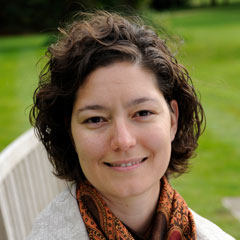
Anna Protasio
Wellcome Sanger Institute, UK

Gordon Awandare
WACCBIP, University of Ghana
Instructors and Speakers
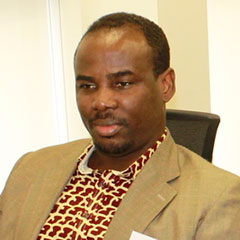
Samuel Armoo
CSIR, Ghana
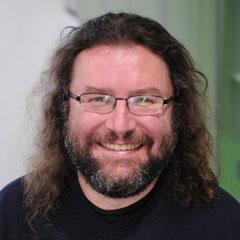
Martin Aslett
WGC Advanced Courses, UK
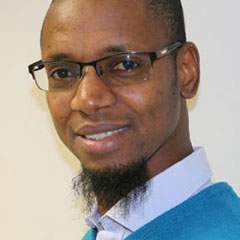
Saikou Bah
WACCBIP, University of Ghana

Matt Berriman
Wellcome Sanger Institute, UK

Steve Doyle
Wellcome Sanger Institute, UK
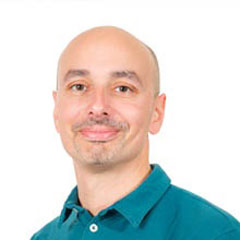
Kevin Howe
EBI, UK

Hugues Nana-Djeunga
CRFILMT, Cameroon
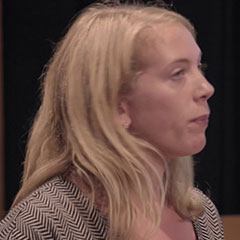
Faye Rodgers
Wellcome Sanger Institute, UK
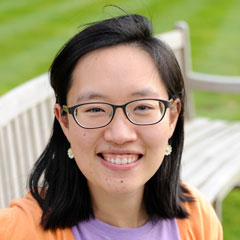
Arpon Wangwiwatsin
Khon Kaen University, Thailand
How to apply
Prerequisites
The course is open to applicants based in Africa involved in helminth-related research. Applicants should have a basic level of computer competency. The course will be taught in English.
How to Apply
Please complete the online application form. Places are limited and will be awarded on merit. If you have any problems with the online application process, please contact us.
Please note: Applications must be supported by a recommendation from a scientific or clinical sponsor (e.g. supervisor, line manager or head of department). A request for a supporting statement will be sent to your nominated sponsor automatically during the application process. Applicants must ensure that their sponsor provides this supporting statement by the application deadline. Applications without a supporting statement cannot be considered.
Cost
Cost
The course is subsidised by Wellcome Genome Campus Advanced Courses and Scientific Conferences and is free to attend for non-commercial applicants.
Please contact us for the commercial fee.
Bursaries
A limited number of bursaries are available for each course. These are awarded on merit to cover travel, accommodation and sustenance. The maximum award for travel (economy class) will be £750. If you would like to apply for a bursary, please complete the bursary section of the online application form.
Bursaries can be applied for as part of the course application form. Applicants will be notified of a bursary award along with their place on the course, usually within one month of the application deadline. The decision of the selection committee is final.
Please note that both the applicant and sponsor are required to provide a justification for the bursary as part of the application. Priority will be given to applicants from low- and middle-income countries.
Accommodation services phishing scam – please be vigilant. More information.
